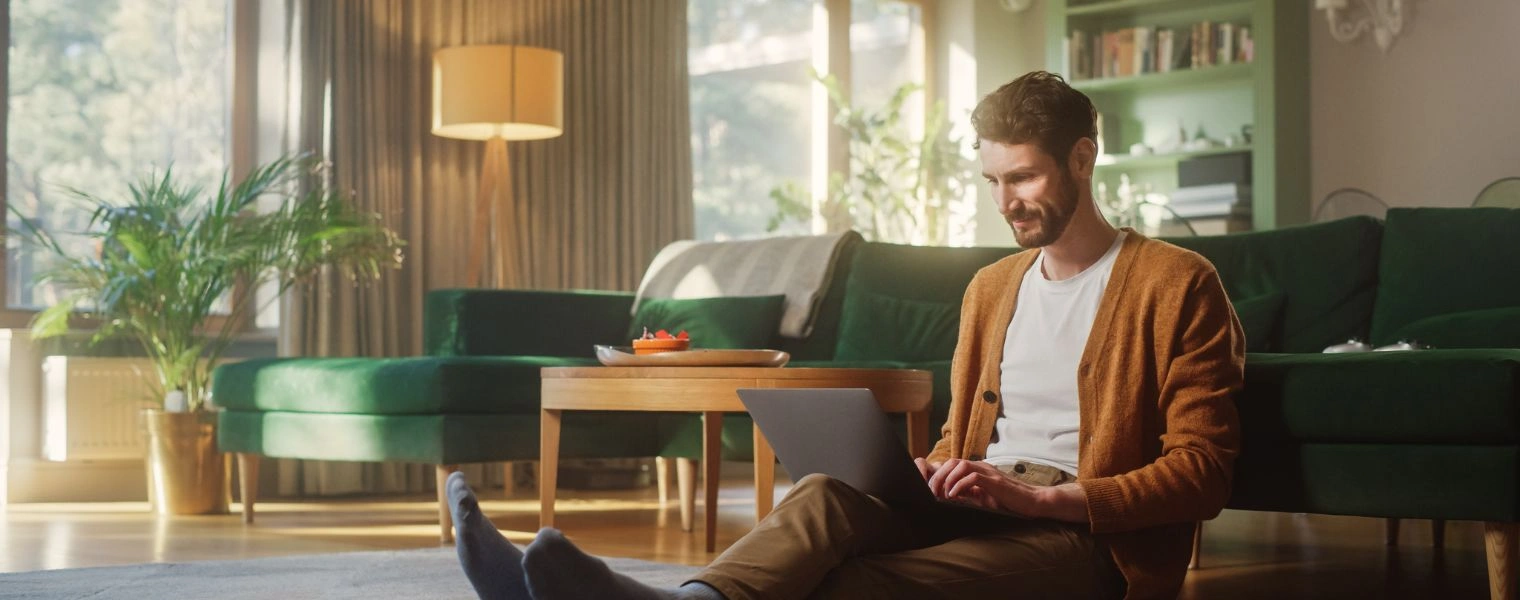Get Support With Relapse Prevention Resources at Icarus Nevada
Creating a relapse prevention action plan helps those in early recovery stay committed to staying sober. It’s the go-to tool for many in the recovery community, helping them avoid the potential consequences of a slip-up. Writing an effective plan takes care and forethought, but our relapse prevention plan template has you covered.
As a JCAHO-certified recovery center, Icarus Nevada knows that returning to daily life after a formalized treatment program can be exhilarating but fraught with potential pitfalls. Every client who graduates from our Las Vegas rehab center leaves with a prevention plan to help them remain focused on the coping strategies and self-care tools they have learned.
Do you or a loved one need help crafting a personal plan? Our relapse prevention plan template is the perfect tool.
Creating a Relapse Prevention Action Plan of Your Own

Follow our template, applying the suggestions we make to your own situation. A relapse prevention plan should be highly personalized; you should own the process. Be honest about your symptoms and cravings without being self-critical. As you follow the worksheet, the entire process will come together beautifully!
1 – Review the Relapse Stages
Our PDF includes a quick review of the three stages of a relapse, helping you recognize the need to focus on your personal plan . Relapses don’t usually occur all at once; they usually unfold in 3 stages with distinct behavioral symptoms:
Emotional Relapse
Emotional relapse sets a person up for making mistakes. They’re not using again, yet. However, they’re ignoring self-care, bottling up their emotions, or skipping therapy follow-ups. These warning signs indicate they’re not doing the things they need to do to stay clean and sober.
Mental Relapse
During the next phase, mental relapse, the person begins thinking or fantasizing about using drugs or drinking alcohol again. They glamorize past use, blocking out the negative consequences. That might also mean they start “bargaining,” telling themselves they can use their substance “just this one time.”
Physical Relapse
If they continue to ignore the warning signs, they actually use substances again – physical relapse. They slide back into alcohol or drug use. Without immediate help, they risk their sobriety. It’s time to get help.
If you’re reading this page and have found yourself slipping back into drug use, know that mistakes are a natural part of substance abuse recovery. We encourage you to reach out to someone safe before things worsen.
2 – Make an Emergency Contact List

Consider who you can reach out to for support when you must face cravings or difficult emotions? A solid plan means knowing who to call for help the moment you find yourself in a risky situation. Some of these people you might include on your emergency contact list are:
- AA or NA sponsor’s name and phone number
- Supportive friends or family members
- Therapist
- Case manager
- 24/7 helpline or online chat resources
It’s easier to cope with the stress of your triggers when you have a friendly support network to remind you to refer to relapse prevention plan strategies.
Get Accredited Treatment Programs at Icarus – Call Now!
3 – Name Certain Places, People, and Situations to Avoid
Staying sober means remaining free of the risky situations that promote alcohol or drug abuse. You support long-term sobriety by steering clear of the places, people, and behaviors that make you feel like you want to use again.
Here are some examples of places that lead people in recovery back to releases, or when not addressed, into active addiction:
- People who still engage in substance abuse
- Those who don’t support your recovery (including dealers)
- Places associated with drugs or drinking
- Emotional and physical states that could lead to cravings (HALT triggers: Hungry, Angry, Lonely, Tired)
You’re more likely to maintain sobriety if you avoid the situations that trigger use.
4 – List Your Safe Zones

This section of the relapse prevention plan works hand-in-hand with #3, which tells you to avoid relapse by staying away from specific triggers. This section helps you replace the things to avoid with sobriety-supporting resources, places, activities, and relationships. Seek some places and activities that support sobriety in places that feel calm and safe:
- A local library or coffee shop with a calm atmosphere
- My local support group or meeting location
- The home of a close friend who supports your sobriety
As you begin creating a relapse prevention plan, you’ll feel even more motivated to seek these resources.
5 – Managing Cravings Tool Kit
Cravings do not mean failure. Anyone in long-term recovery will tell you that you’ll feel them for months – or years. But that doesn’t mean they need to control your life. This section helps you consider resources to help control those inevitable cravings and safe places to ride them out.
- Find a new activity to distract the brain and prevent relapse when cravings strike: knitting, working out, or taking a brisk walk (you pick the activities that interest you!)
- Calling a loved one or trusted friend from the emergency contact list section of the relapse prevention plan
- Riding out the craving using breathing exercises, saying positive affirmations, or writing a gratitude list
- Attending an online SMART Recovery, Alcholics Anonymous, or Narcotics Anonymous meeting right away instead of waiting for your regular meeting to begin
Having these tools written out in a relapse prevention plan helps you avoid the behaviors and actions that could lead to using drugs or alcohol.
6 – Identify Local Recovery Support Networks

A complete relapse prevention plan will always include information on where the person can go for weekly support groups. When formal treatment ends, it will become time for you to manage your life stress and take ownership of your behaviors to avoid relapse.
However, that doesn’t mean you don’t need continued support. Most communities have the following support resources available:
- Alcoholics Anonymous
- Narcotics Anonymous
- SMART Recovery
- Sober living communities (if you still find you need a little more structure)
- Community mental health centers
People in these locations can help you feel more confident as you continue to avoid substances.
7 – Coping Strategies for a Healthy Lifestyle
Patients at our treatment center don’t all find the same coping skills helpful. Likewise, you will include examples of the tools that help you maintain a healthy lifestyle and behaviors. Some examples when creating a relapse prevention plan can include:
- Deep breathing or mindfulness apps
- Praying or meditating
- Journal writing
- Calling a friend
- Exercise
- Listening to inspiring or uplifting music
- Reading and reciting positive affirmations
In this release prevention plan template section, you remind yourself of your go-to list of tools to prevent relapse. List all the positive ways to spend time that you’ll actually do.
8 – Setting Personal Goals

Setting achievable personal goals helps you stay focused and look past addiction beyond just “staying sober.” In this section of your relapse prevention plan, you will list 3 short-term and 3 long-term goals.
9 – What to Do After a Relapse
The final section of the relapse prevention plan template can be the most difficult part to write. Nobody wants to admit that they could miss the warning signs or triggers and relapse. There is no shame in relapse, but it does mean you need support to get your recovery and your life back on track. List these things:
- Remind yourself: Relapse is a setback, not a failure.
- Who will I call first?
- What are my next steps? (Go to a meeting? Make a therapy appointment?)
Mistakes can happen even when you have written an excellent relapse prevention plan. It doesn’t mean you’ve failed but are at significant risk. Take this moment and treat it as a learning opportunity.
Up To 100% of Rehab Costs Covered By Insurance – Call Now!
Choose Icarus Nevada for Addiction Treatment and Relapse Prevention
You may be reading this page because you are curious about getting addiction treatment. While creating a relapse prevention plan might feel far away at this moment, getting support and guidance from a treatment professional means that it’s not as far away as you think.
Icarus Nevada makes recovery possible. We use a holistic, evidence-based approach that treats both the symptoms and underlying causes of addiction in our patients. Besides learning more about your addiction, our admissions specialists will also help you navigate your insurance benefits to minimize your out-of-pocket fees. We work with most insurers and accept self-pay clients.
Are you ready to start creating a new, sober lie? Call us today for immediate assistance.

